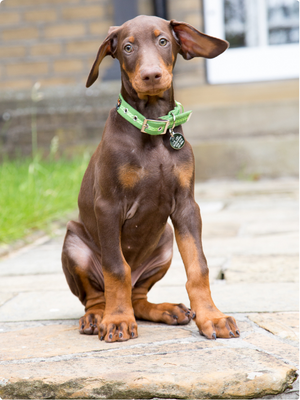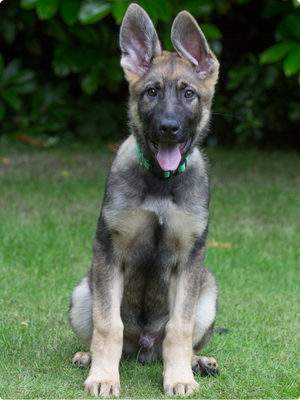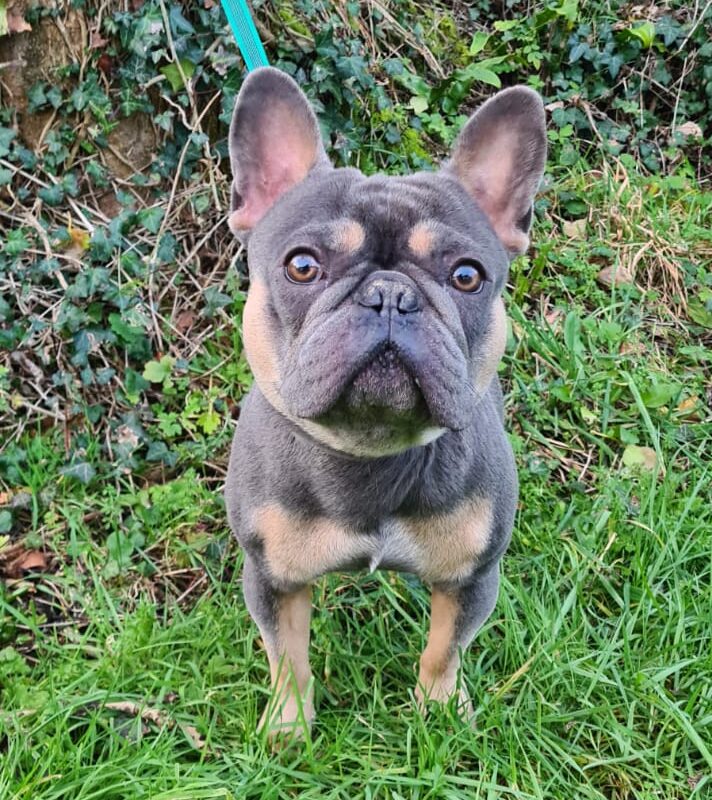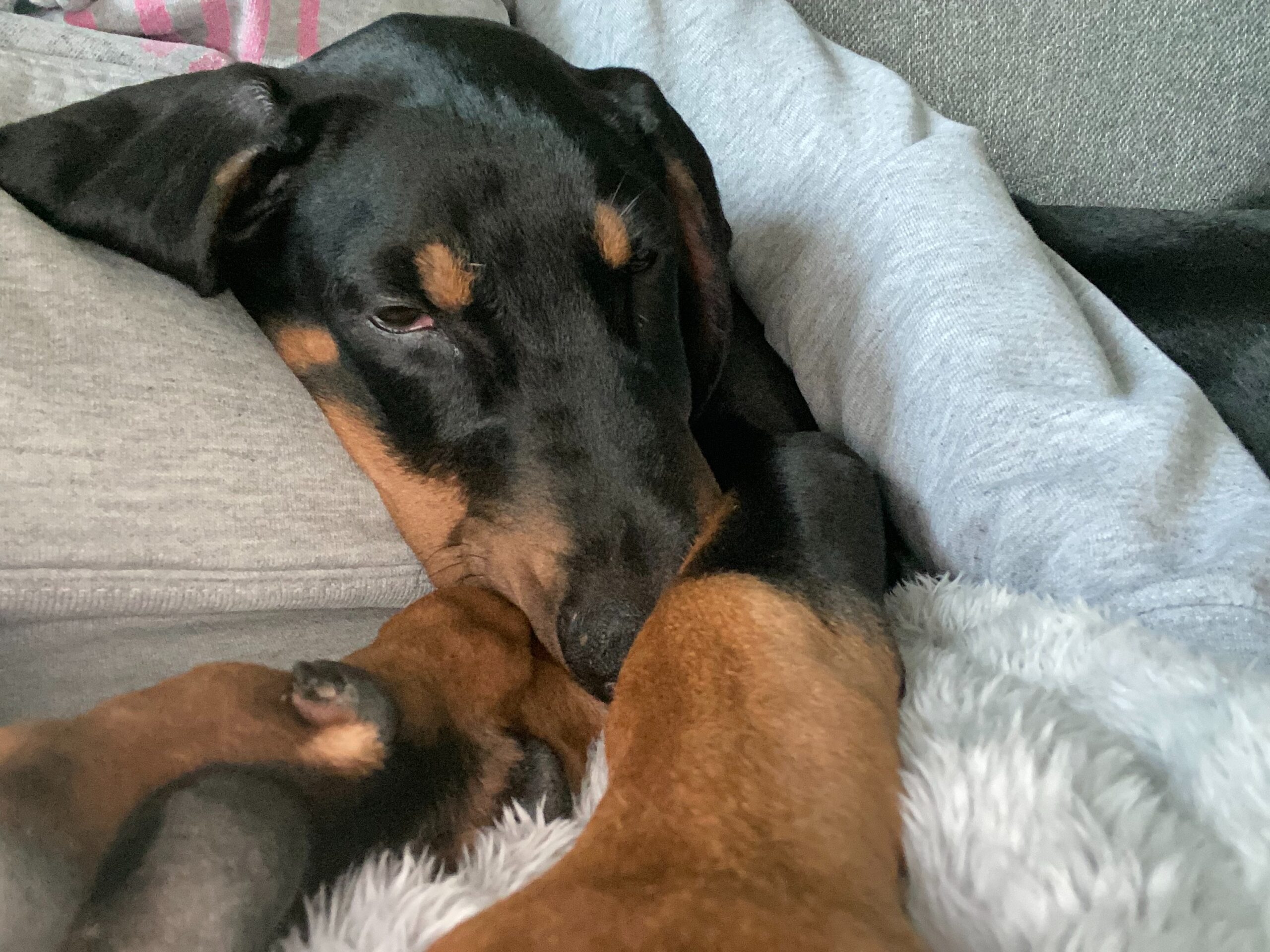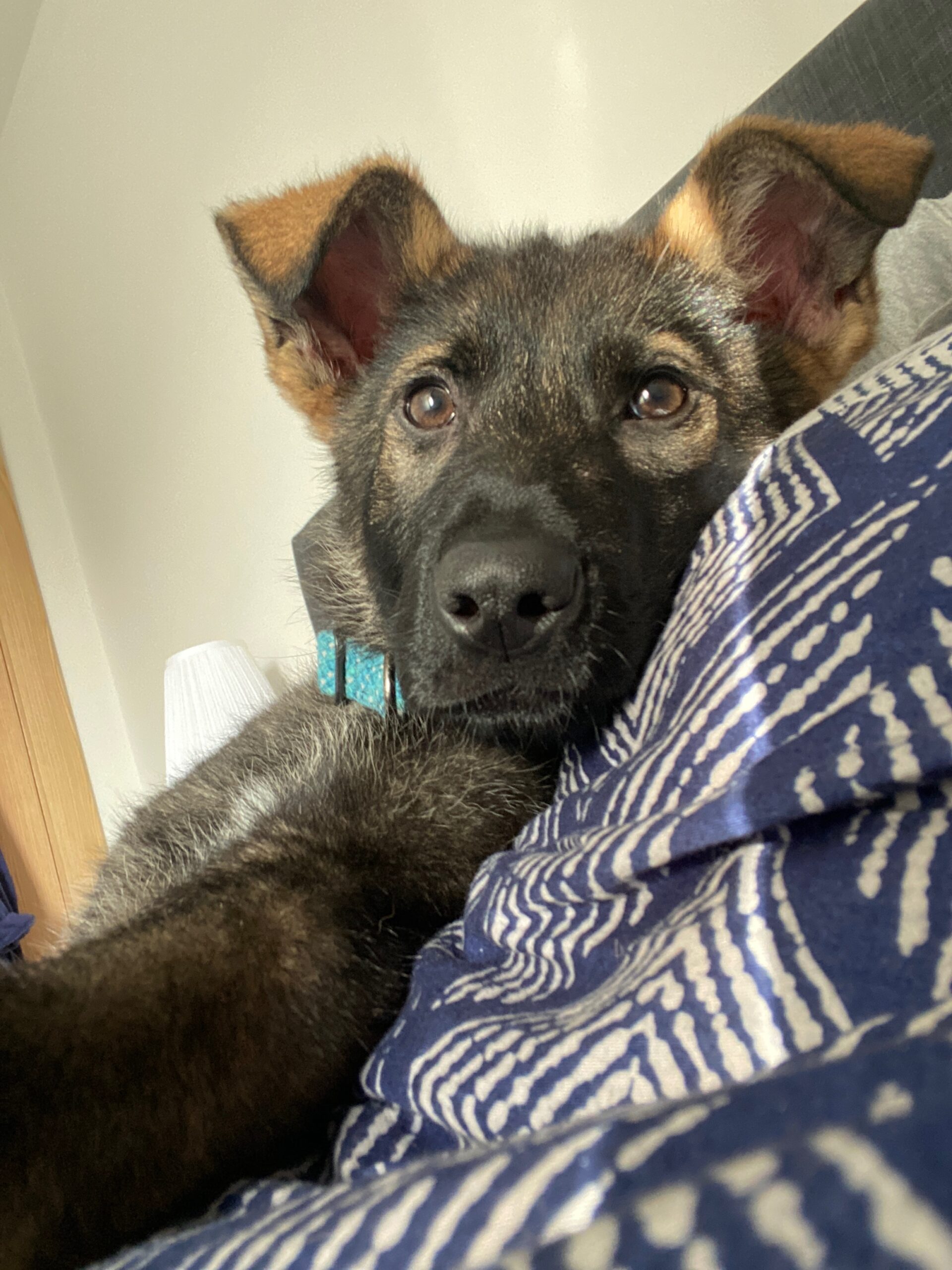How To Choose The Perfect Puppy
As professional dog trainers we are often asked to help people who haven’t made the best choices of puppy or dog for their lives or when things have gone off the rails. Sometimes this is a matter of inexperienced owners and lack of skill and other times it’s the result of a bad choice or bad fit of dog and family.
We’ve provided this guide to try to help people make the best choice they can in selecting a puppy for their family.
Deciding the right breed for your lifestyle
You should make a brutally honest assessment of what level of experience and skills you have, how much time you have to dedicate to a dog and what the requirements are for your family dog.
Are you a couple who love hill walking every weekend and 2 hours every week day to spend walking and training your dog? Are you a busy working couple with 4 children who all have after school activities so you want a family dog to just ‘fit in’ and chill? Are you a retired person with all the time in the world but not huge reserves of energy or fitness? Are you a single person living in a flat in a city? Of course, these are in some cases stereotypical examples but you get the idea.
Whilst we all need to have a dog that we like the look of we need to give some thought to size, exercise requirements, drive levels, training needs, natural drives and behaviours, maintenance/grooming, veterinary care and more!
There’s no point in a busy family with 4 children choosing a Belgian Malinois. They inevitably won’t be able to meet the needs of this demanding and high drive breed and his behaviours will become problematic in the home.
If you don’t intend to spend a regular amount of money on grooming (which can be around £50 every 6 weeks) it will be important not to choose a dog with a coat type that requires this service.
If your garden is immaculate and your plants are precious to you then you’ll need to invest in a fence as the terrier you choose will inevitably dig holes all over it.
If you live in a built up area and have close neighbours, often a guarding breed like a Dobermann won’t be suited as it may bark a lot.
Researching the natural behaviours of the breeds you are interested in, understanding what the benefits and problems are within the breed is essential. Understanding all of this and assess how this fits in with your environment and circumstances before you make your choice of breed.
Health
After you’ve chosen the breed of puppy you would like, it’s important that you do as much research on the health problems that may be associated with that breed or dogs of this type.
Avoid any nonsense you may read online about “hybrid vigour” of crossbreeds which will, like all matings, inherit the strengths and weaknesses of the parents and pedigree.
Make sure that you are fully aware of the mandatory health tests which are imposed by the Kennel Club and consider speaking with the KC Breed Club(s) for your breed to obtain additional advice about health schemes and recommended testing.
There will no doubt be breed club websites and social media pages/sites which you can also refer to.
When you’ve chosen a breeder, or you’re looking at a litter, make sure that you ask what health testing has been done – use your list from the KC and breed club like a checklist. DO NOT under ANY circumstances accept anyone’s word for it that the tests have been carried out. You MUST ask to see the health tests (good breeders will offer this) and if you don’t know what a good/clear test looks like then ask the advice of a breed club or breed specialist.
meet the parents
Whilst dogs rarely reproduce themselves, genetics are powerful and undoubtedly transmitted to the offspring. If you find you meet the parents of a litter and they’re nervous or aggressive then it’s fair to say the puppies will inherit these temperament characteristics. It’s pretty common not to see the sire of the litter as often a male owned by someone else, sometimes even in a different country, will be the father of the puppies.
When you see the parents and puppies and you’re not happy with what you see then you need to be prepared to turn around and walk away.
Collecting Your Puppy
Be Prepared as the Boy Scouts say.
It’s important that you give some thought to what happens when puppy comes home. You need to make a plan of where puppy will sleep, how you intend to manage it (do you live alone? Can you work from home? Do you need to get help?) Which vet will you use? Where will you walk puppy?
Collecting Your Puppy – How To Choose
One of the most important factors in visiting a litter is being prepared to walk away without one.
Never ever agree to meet someone in a service station or any other place to collect your puppy. You MUST go to the breeder and see how the puppies have been kept and see the mother.
It’s important to see where the puppies are living and how they’ve been kept. Making sure that the puppies are in an area where there is a distinct difference between where they sleep and where they can clean themselves is key. Generally puppies who cannot remove themselves clearly from one area to another will struggle with house training and may also develop issues such as eating their own and other dogs poop.
Having a clear idea of what you want from your puppy/dog is important both when choosing your breeder, litter and also when choosing your puppy. Knowing whether you want a high drive dog for outdoor pursuits or whether you want a sofa companion will help steer you on the activity levels and temperaments of individual puppies. We would encourage anyone viewing a litter not to take a puppy away because “they feel sorry for them” or to choose the hooligan puppy that’s running wild and monstering all the other puppies in the litter.
It’s worth considering that the average person will choose a puppy once every 10-15 years therefore experience of doing so is very limited. Taking a professional with you to help you choose your puppy is often beneficial to hear someone else’s viewpoint.
the first night
It is our recommendation that you should put a small puppy crate beside your bed and after toileting last thing at night, place puppy inside and close the door. Puppy may complain a little but hopefully being tired and still having line of sight to you nearby will settle him down for the night.
It is normal for an 8 week old puppy to need to go out in the night and so you should be alert to this and when puppy wakes and cries very quickly carry him outside to relieve himself. Do not speak to him or fuss him during this period, we want everything to remain super sleepy and calm so that you can carry him back to bed and allow him to settle in his crate next to you once more.
finding a breeder
One of the most important decisions you will make in this process is choosing your breeder.
A good breeder is someone who will be with you every step of the way for the whole of the life of your dog. This person should be available to you at all times to provide advice and guidance about your puppy, your breed and any other challenges you may meet along the way. They will also take any dog they’ve bred back at any point in their lives. They provide Lifetime Support.
If your dog becomes ill when he’s 5 years old your breeder should want to know as it may inform their breeding decisions. If you have problems with your young dog and need professional advice, often your breeder will be able to recommend an appropriate contact.
A good breeder will have researched their pedigrees and the pedigrees of the male they’ve used, they’ll know the dogs within the pedigree intimately and will have selected for various qualities in line with the breed standard.
You should remember that whilst sometimes a breeder and a puppy owner will become lifelong friends, the original relationship is a business one. You have both come together as buyer and seller and you should take care when entering into any contract.
When you’ve chosen a person who is breeding ethically and responsibly you will have on or more conversations with them about your intentions for your puppy. It’s commonplace for breeders to operate a waiting list for people who are interested in buying a puppy and be asked to specify if you’d like a male or female and in some cases if you have a colour preference. Sometimes you will have to wait up to 12-18 months for a litter.
It is also commonplace for breeders to request that you leave a deposit for a pup. Some ask for this before the litter is born, and others after the litter is born. If you’re leaving a deposit before the litter is born please make sure that it’s fully refundable and don’t accept such sharp practices as rolling the deposit forward to a future litter plan in the event that a suitable puppy for you isn’t available in the original litter.
Ideally you also want to make sure that your deposit is fully refundable in the event that you go to meet the parents of the dog or the puppies in the litter and you’re not happy with either of those.
Good luck!
Hopefully this guide has given you some basic information on making a good choice of a new family member and companion dog.
We also have a guide on how to raise your perfect puppy so look out for that and GOOD LUCK!
You May Also Like…
How To Find The Right Dog Trainer
How To find the right dog trainerChoosing the perfect dog trainer is crucial for the happiness of your dog and your...
Why Does My Dog Growl At Other Dogs?
Why Does My dog growl at other dogs?Growling can appear to be an aggressive behaviour that may be upsetting and even...
Leadership & Relationship
how can i be my dog's leader and develop a great relationship?Leadership is recognising and honouring the fact that...


